Low-calorie beer: 15 big brands with fewer than 150 calories per serving
Low-calorie beer is a great way to enjoy a refreshing drink without compromising on your goals. Here, we reveal the calorie count in the popular options
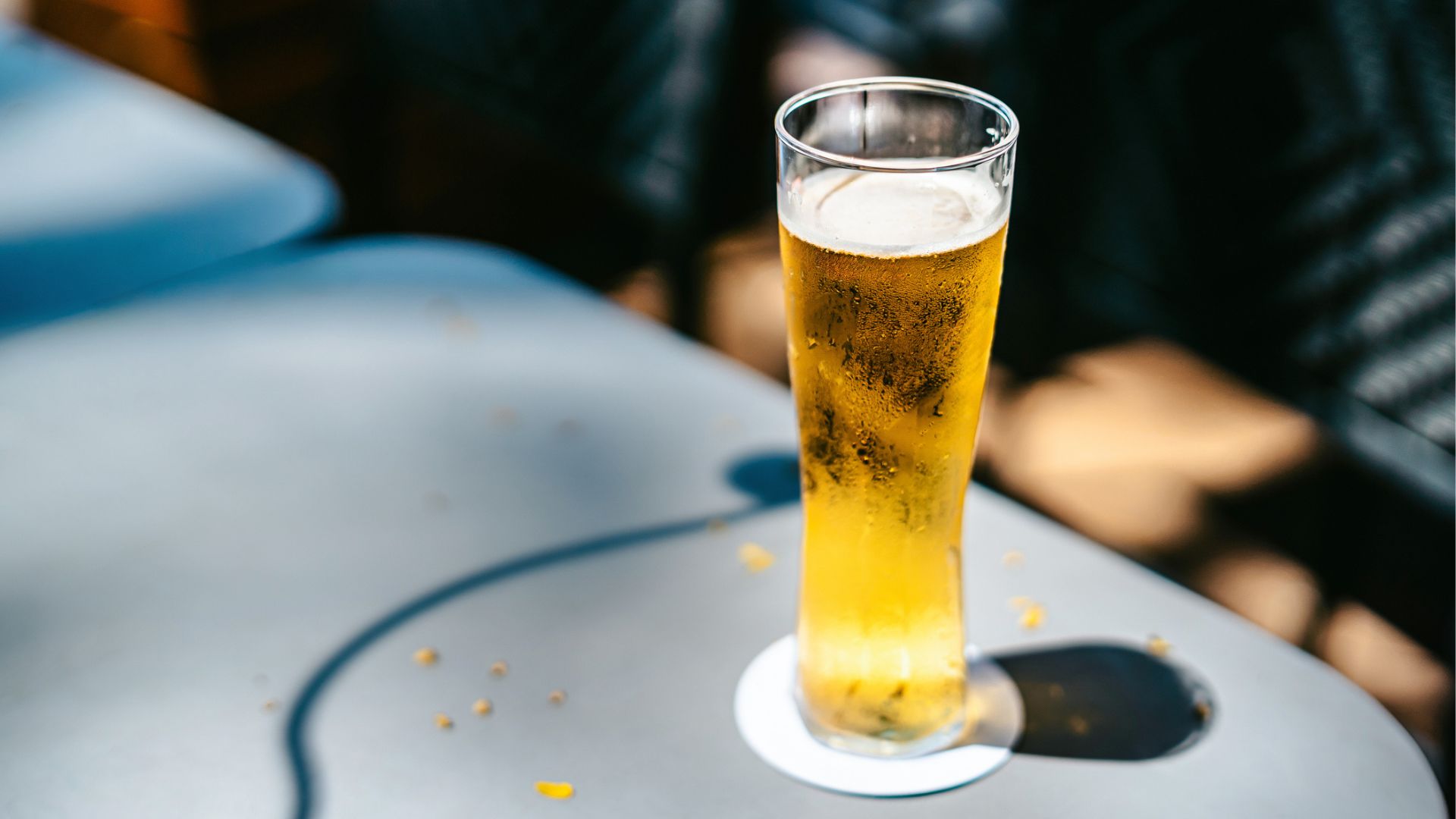

Low-calorie beer can be the perfect middle ground between enjoying a refreshing drink and keeping to your health goals. From alcoholic options under 150 calories to delicious non-alcoholic alternatives, these are the beers to order at the bar and add to your basket.
While many people believe that giving up alcohol is the first step to losing weight or maintaining any kind of health goals, it doesn't have to be the case. Food and drink is so much more than nutritional value. It's often a key part of how many people socialise in the UK, so it's completely normal to not want to abandon drinking altogether.
Low-calorie beers are among the lowest-calorie alcoholic drinks you can have, making them a great alternative to higher-calorie and higher-ABV drinks like cocktails and wine. To help you find your pick of the best and discover new favourites, we've revealed the calories in the most common types of beer and ones you might like to try.
The best low-calorie beer
Best low-calorie beer with alcohol
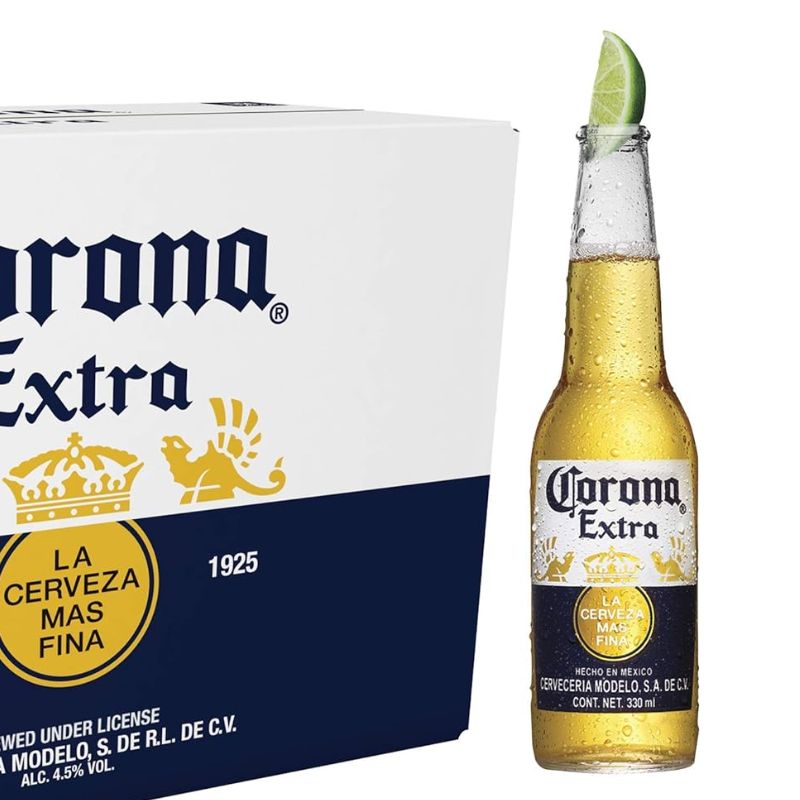
Corona Extra is one of the bestselling brands of low-calorie beer in the world. As a pale lager, it's a refreshing and light option, typically served with a slice of lime in the top of the bottle. With 44 calories per 3.5oz (100ml), 148 calories per bottle (350ml), and 4.5% alcohol, Corona is also one of the lowest-calorie beers out there.
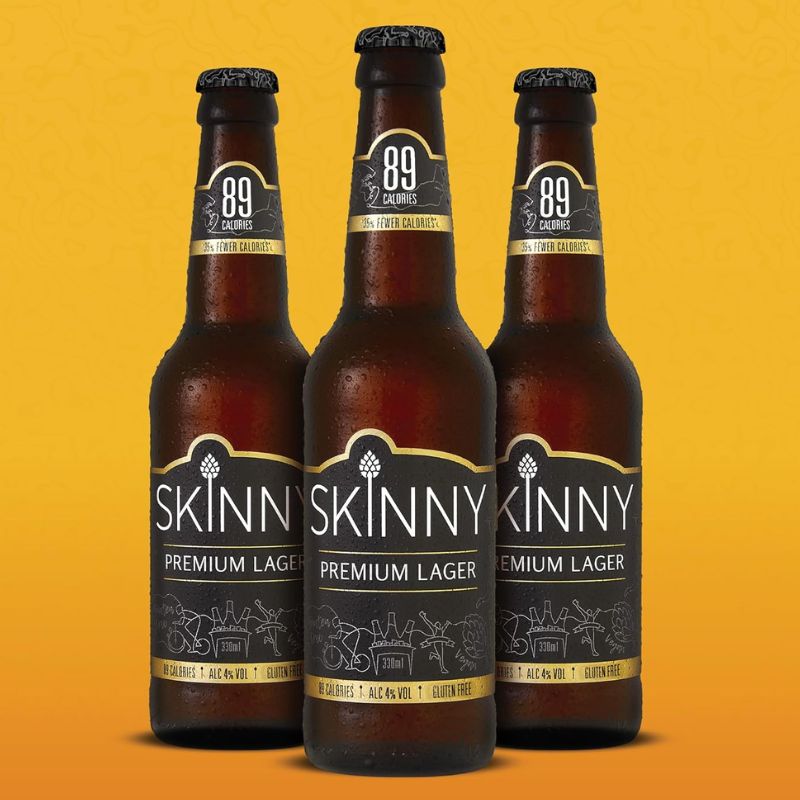
Brewed in the UK, Skinny Brands beer is an excellent choice for anyone who wants to cut back with a low-calorie beer while still enjoying a great-tasting beverage with 4% ABV in each beer. The brand offers multiple varieties of beer, including lager at just 87 calories per bottle and IPA at 89 calories per can.
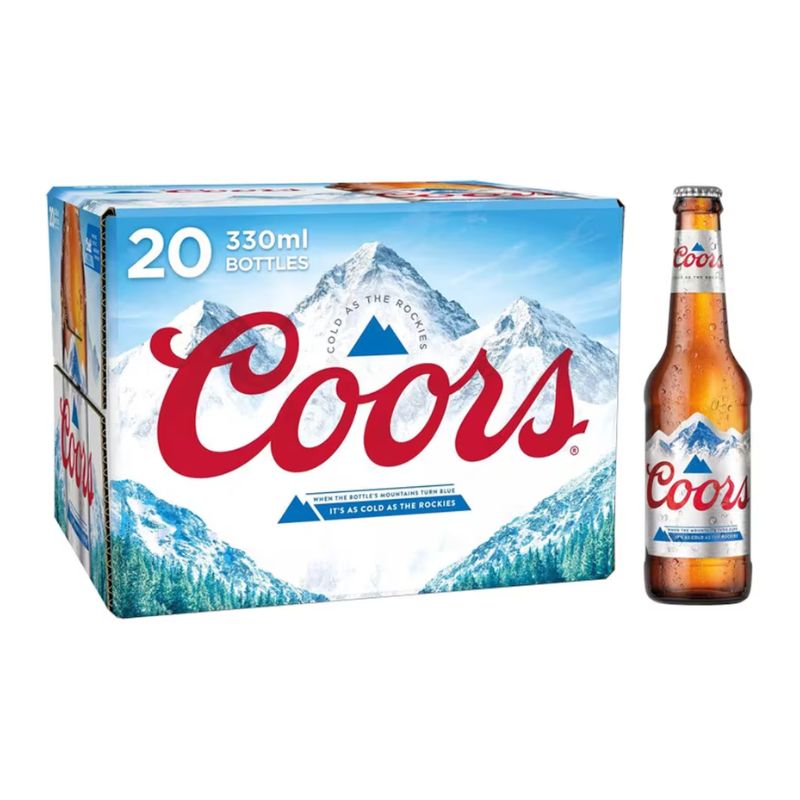
Coors Light is easily one of the best low-calorie alcoholic drinks in a can on this list, with 4.2% alcohol per bottle. There are just 102 calories per standard 350ml serving, meaning there are only 28 calories per 100ml. Known for its crisp, light, and smooth flavour, clean malt notes, and low levels of bitterness, it's one of the best out there.
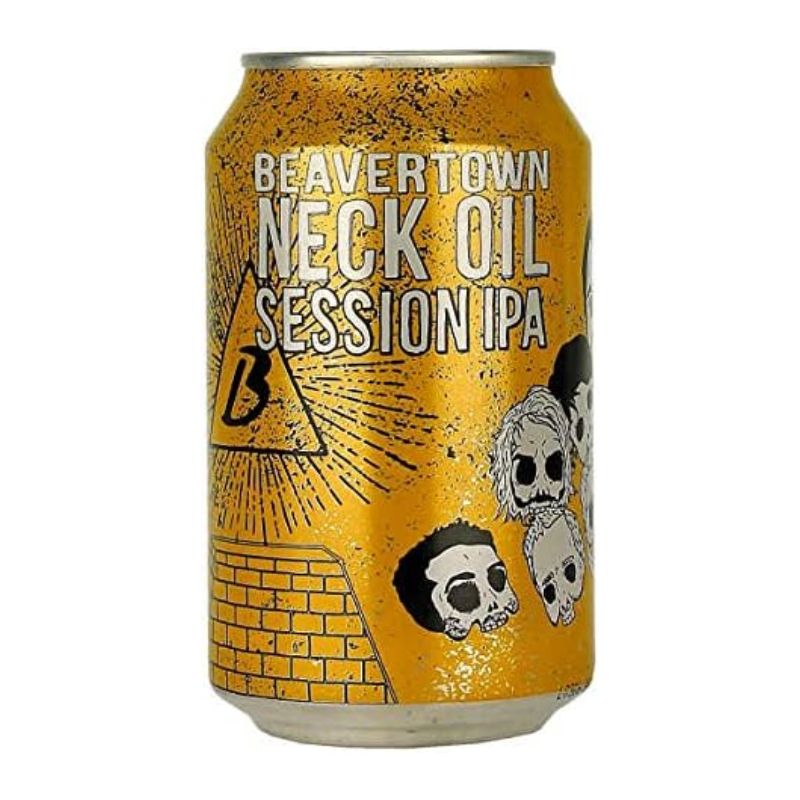
Indian Pale Ale (IPA) is much like a regular pale ale but made with more hops and often comes with a citrusy twist. Beavertown's Neck Oil Session IPA is frequently served in bars but you can buy it in grocery stores in cans. There are 36 calories per 100ml, only 122 calories per standard can, and 4.3% alcohol percentage.
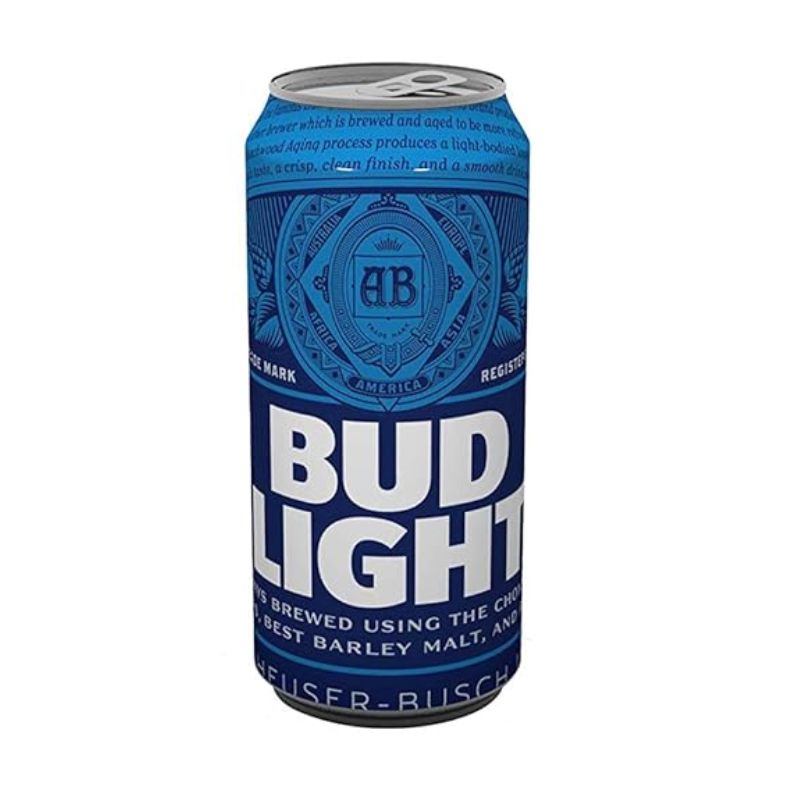
Bud Light is an American-style pale lager, much like Corona, and perhaps the most famous low-calorie beer around at 3.5% alcohol per bottle. Available to buy in grocery stores and bars around the world, there are only 110 calories per single serving.
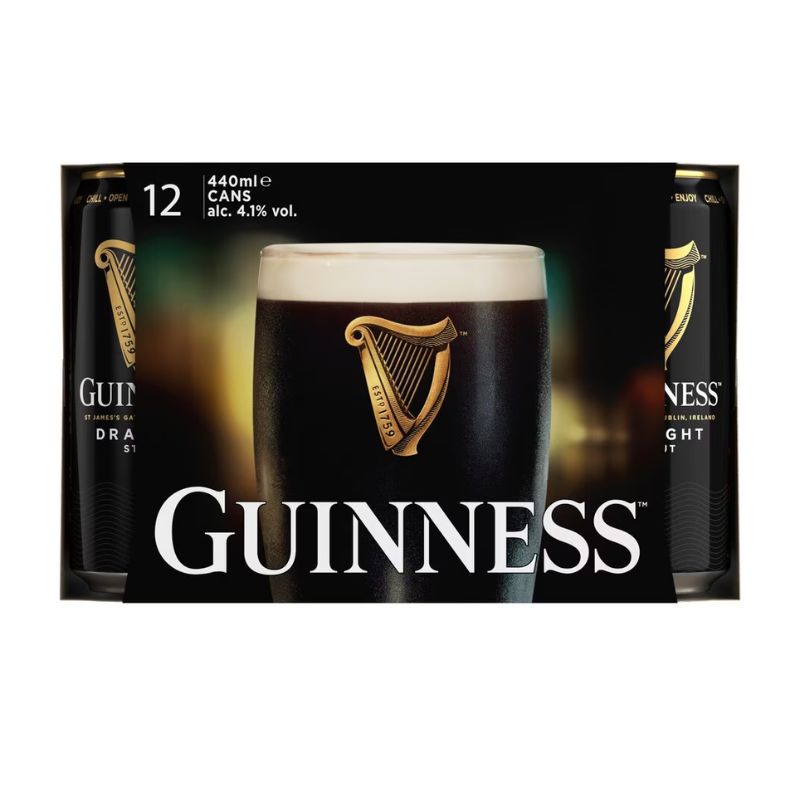
It may surprise you to know that Guinness, the classic Irish dark stout, is actually also one of the most naturally-low-calorie beers out there with just 126 calories and 4.2% alcohol per 350ml serving. Great for those who love a rich, velvety, and dark beer.
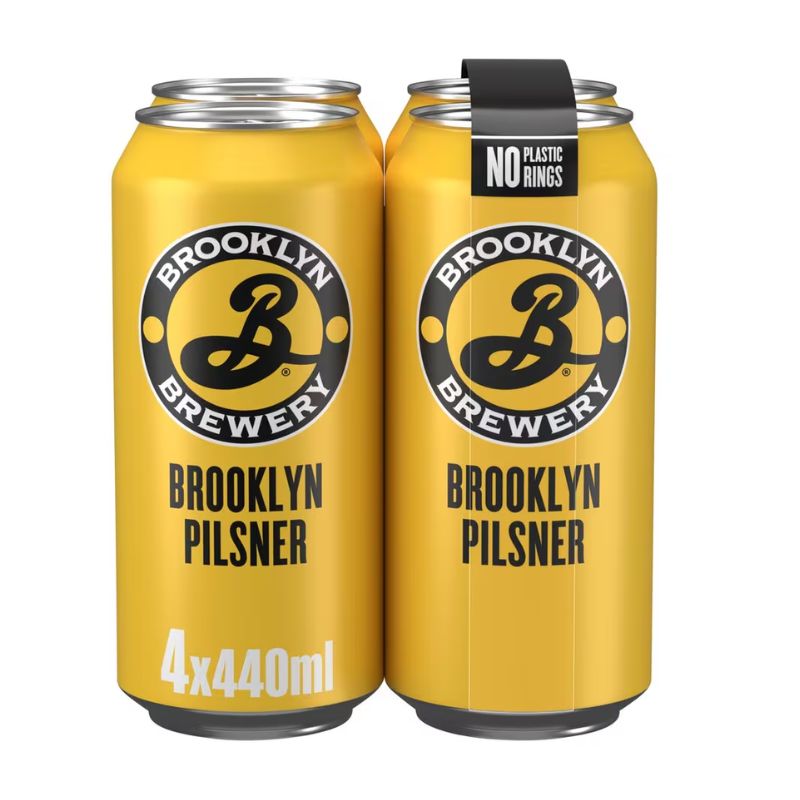
Available across the US and in 30 countries around the world the Brooklyn Pilsner Lager is a great choice. It's a beer that features light, toasty flavours and a spicy but subtle citrus hop. It's a naturally low-calorie beer, offering 125 calories per bottle and 4.6% alcohol.
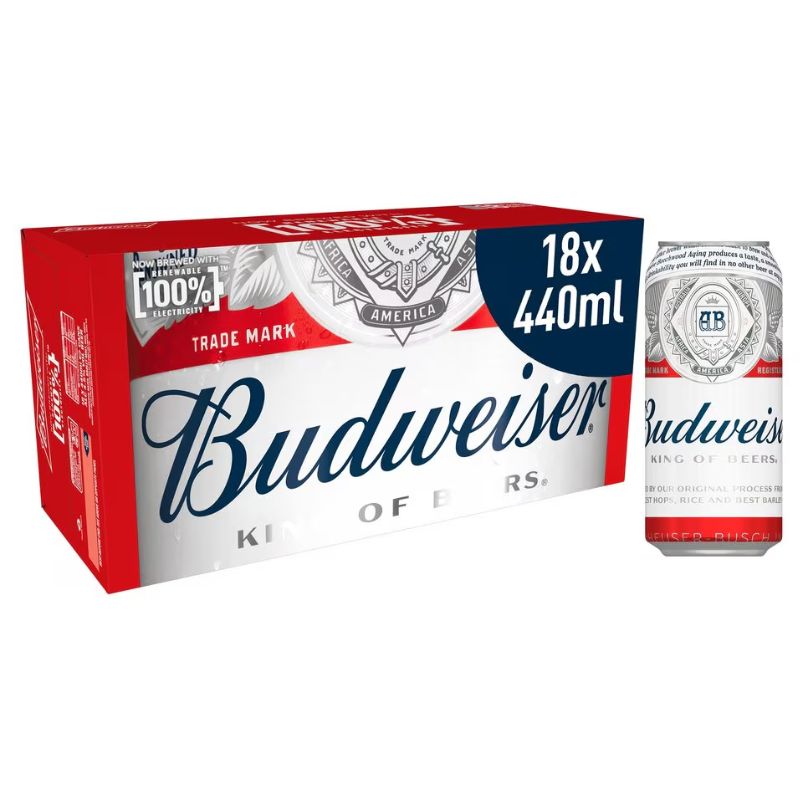
At 129 calories per bottle and 4.5% ABV, the traditional Budweiser beer is a low-calorie option itself. While it doesn't quite compare to the 80 calories in Bud Light, it's more commonly available to buy. Much like its lower-calorie counterpart, Budweiser is a light American pale lager.
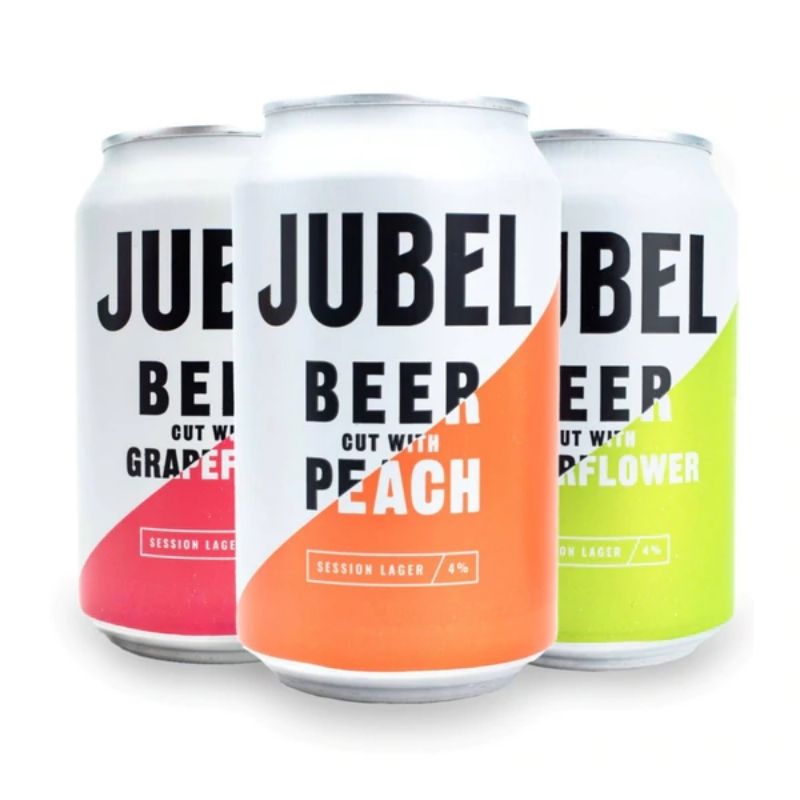
Jubel is a craft lager, perfectly designed for those who love the fruitness of a cider but want the crispness and freshness of beer. At 125 calories per can and 37 calories per 100ml with multiple flavours available, including peach, grapefruit, elderflower, and blood orange, it's a good option for the summertime. Jubel is also vegan and gluten-free and has an ABV of 4%.
Low-calorie beer without alcohol
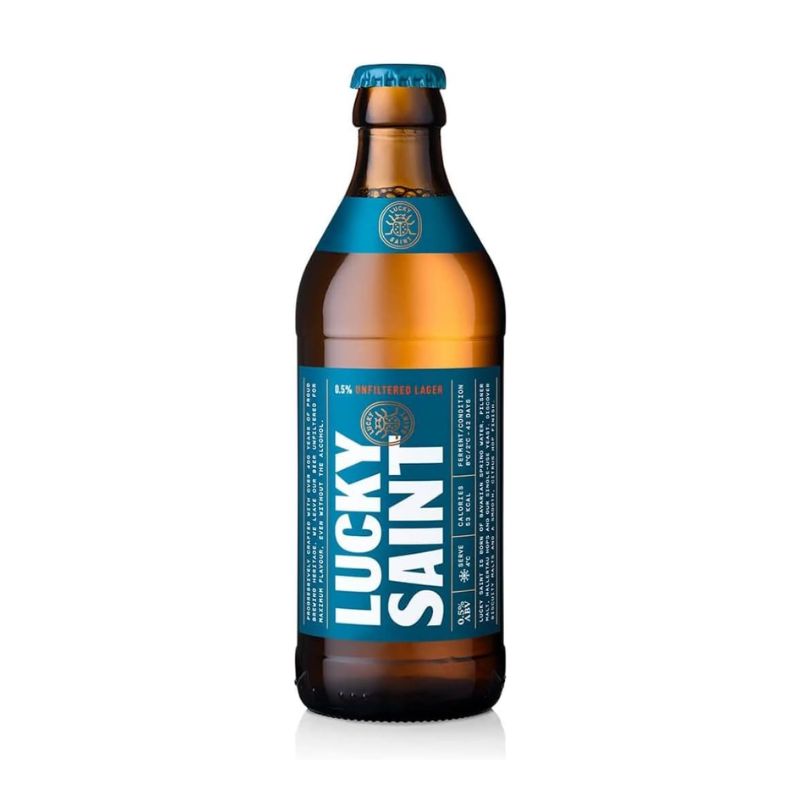
Lucky Saint is often credited as being one of the leading brands in the mindful drinking trend. While there's a minimal amount of alcohol in each low-calorie beer (0.5%), it tastes much the same as a regular pale lager, with a light, energising kick. There are also only 53 per bottle, making it a winner in our books, but higher in calories than the Big Drop Brewing Co. IPA option at just 10 calories per can.
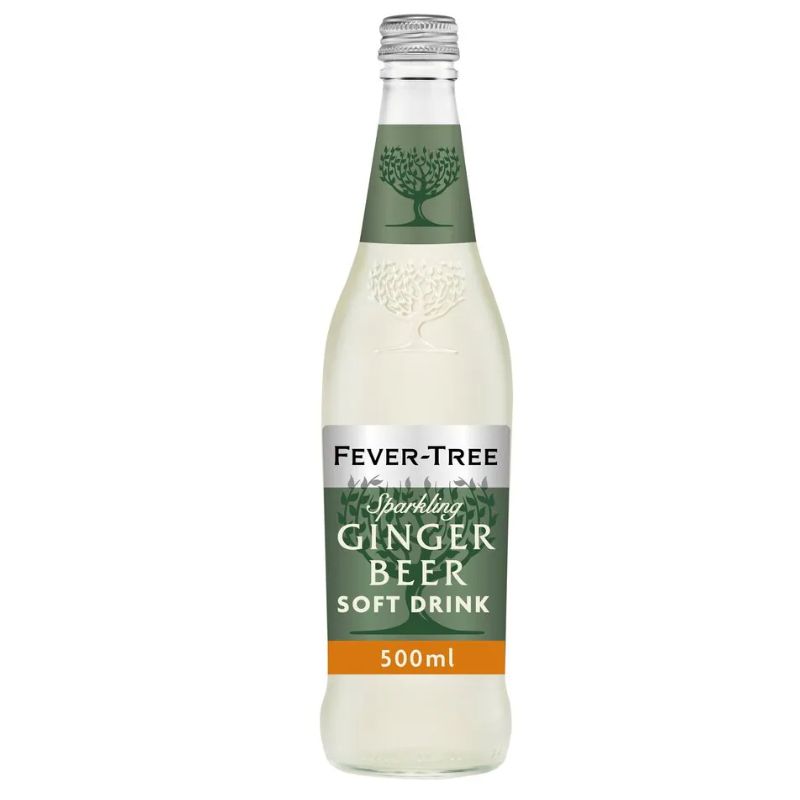
Looking for a ginger beer to drink on a sunny day? Whether you use it as a mixer in low-calorie cocktails or drink it on its own as a low-calorie beer with a couple of ice cubes, Fever Tree's Naturally Light Ginger Beer is a deliciously fresh drink. At 19 calories per 3.5oz (100ml) as well, it's often the lowest non-alcoholic, low-calorie beer on the menu, perfect for those looking to cut down on alcohol.
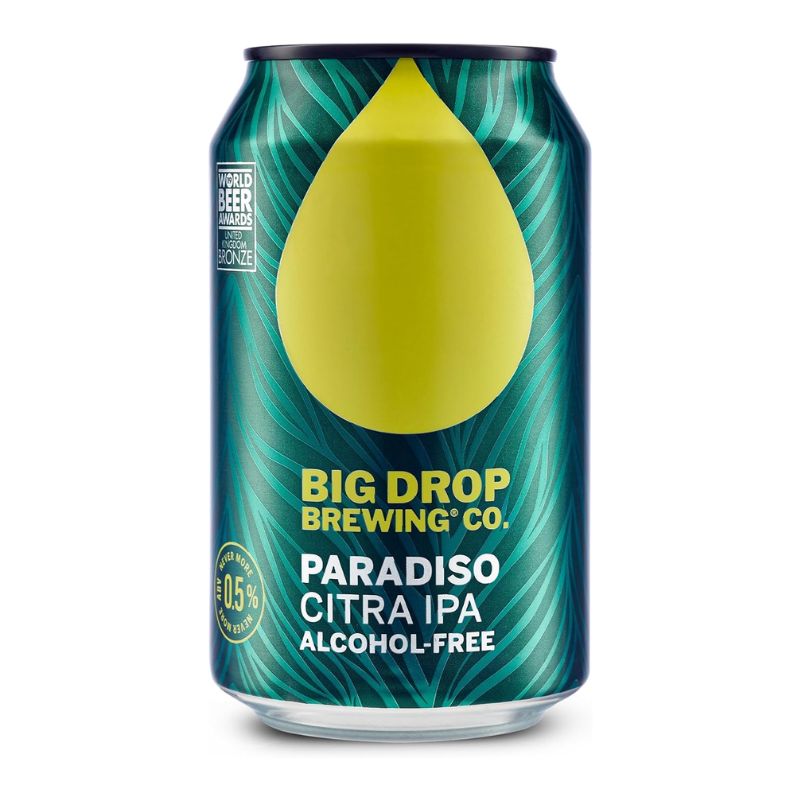
Big Drop Brewing Co's Paradiso Citra IPA is a fruity, citrus IPA beer and one of the tastiest alternatives to alcohol out there. It is also non-alcoholic, meaning it's one of the best low-calorie IPA beers for those upcoming summer picnics and barbecues. There are 3 calories per 3.5oz (100ml), meaning a standard can has an impressive 10 calories per serving.
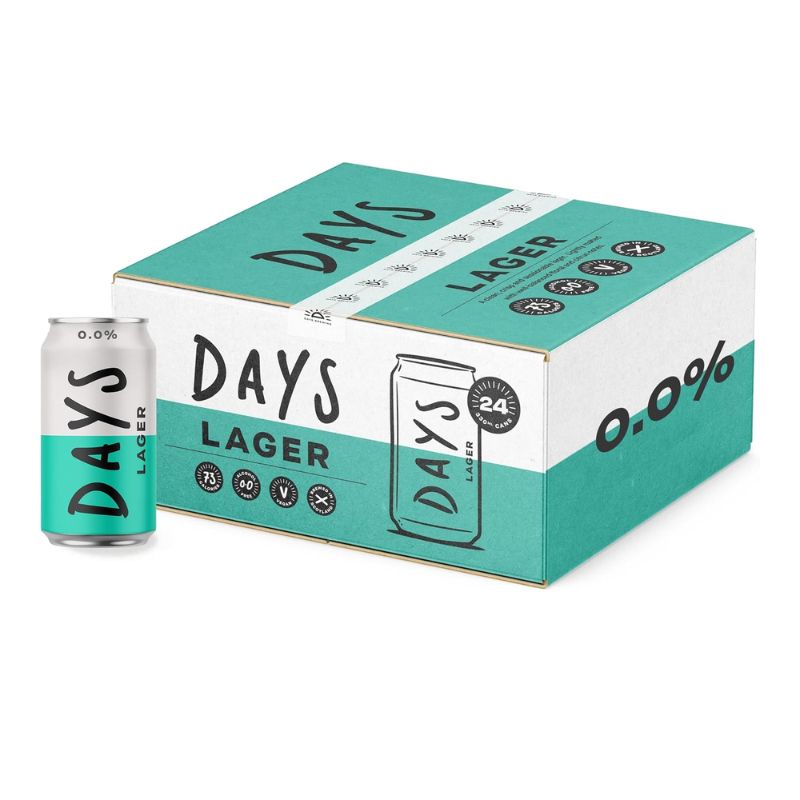
At 0.0% ABV, Days Brewing lager doesn't have even a hint of alcohol. Clean and crisp, this beer also tastes so good you won't even notice the difference. Per 350ml bottle, there are also only 73 calories, it's one of the lowest-calorie beers on the list.
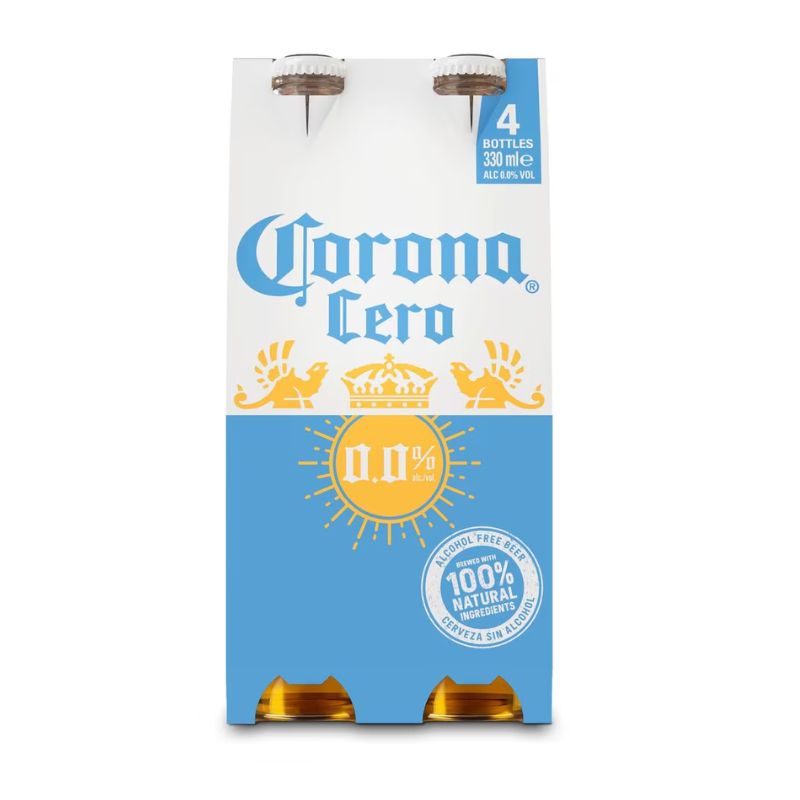
At 56 calories per 350ml bottle, Corona Cero is the best of two worlds: a low calorie beer, rivalling Lucky Saint in terms of calorie count, with a crisp and refreshing flavour that's almost as good as the real thing. If you have a Clubcard, you'll likely find these beers for even less at Tesco.
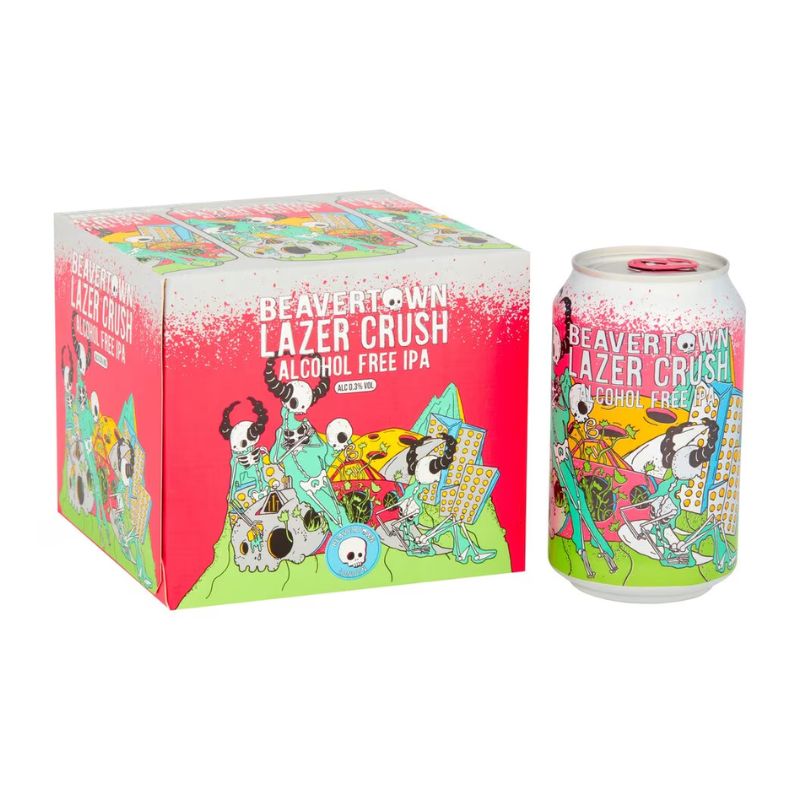
The Beavertown Lazer Crush IPA is an excellent low-calorie and zero-alcohol option at 83 calories per 330ml can. The brand used a particular strain of yeast to make this beer that ferments without producing alcohol, leaving it naturally low in alcohol (0.3% ABV) and with a peachy flavour.
What beer has the least calories?
The beers that contain alcohol with the least number of calories are:
- Coors Light (102 calories)
- Bud Light (110 calories)
- Big Drop Brewing Co.'s Citrus IPA (10 calories)
- Lucky Saint (53 calories)
- Skinny Brands (87 - 89 calories).
"One of the main benefits of non-alcoholic, light beverages is that they contain fewer calories. For example, beer can range between ~140-170 kcal, low-calorie beer is about ~100 kcal, while non-alcoholic beers can be well below 100 kcal," says Gabi Zaromskyte, a registered nutritionist and holistic health coach.
"However, it’s not all just about calories," she warns, reminding us that there's no such thing as healthy alcohol after all. "The downside is that non-alcoholic drinks are made by separating the alcohol from the drink and adding more sugar to improve the taste. Overall, non-alcoholic drinks can be a better choice if you want to feel fresh the next day, but they should not be seen as something entirely healthy. Alcoholic or not, moderation remains the key aspect when it comes to caloric beverages."
Does alcohol free beer have fewer calories?
Yes, alcohol-free beer will have fewer calories than regular beer that contains alcohol. The highest-calorie part of any alcoholic drink does tend to be the alcohol itself as studies by the Eastern Ontario Research Institute reveal that alcohol contains 7.6 calories per gram, so once you cut this out, the calorie count quickly drops.
Sign up for the woman&home newsletter
Sign up to our free daily email for the latest royal and entertainment news, interesting opinion, expert advice on styling and beauty trends, and no-nonsense guides to the health and wellness questions you want answered.
Overall, the best non-alcoholic low-calorie drinks in a can will have the least calories though, always. This includes seltzers, gin and tonic mixers, and mocktails, along with some beers.
Do you need to give up alcohol to lose weight?
No, you don't need to completely give up alcohol if you're looking to lose weight healthily and sustainably. However, the impact of alcohol is often undervalued when it comes to weight loss. Whether you're counting calories or trying to stick to a plan, ignoring the effect of alcohol (even aside from pure calories) on the body is one of the biggest weight loss mistakes out there.
"Alcoholic beverages are composed of ethanol, water, and different amounts of sugar. When it comes to weight loss, one needs to be aware that one shot of spirits or a glass of wine can range from ~100-150kcal, which is equivalent to a light snack. Sweeter cocktails amount to more," says Zaromskyte, who developed the Honesty Method, a framework for making non-diet lifestyle changes. "Considering that alcohol is often consumed in combination with some extra nibbles, which you wouldn’t always have if you weren’t drinking, it can all add up to a full meal’s worth of extra energy or more."
A systematic review and meta-analysis by the University of Cambridge also found that the additional calories consumed from alcohol are not compensated by eating less as a result. People were actually eating more when drinking, she adds.
As noted though, that doesn't mean alcohol has to be completely off the table. "As a non-diet nutritionist, I believe that nothing is off limits, meaning that no food or drink needs to be completely banned from the diet," says Zaromskyte. "Worrying about how bad a certain food or drink is can do more harm than the food or drink itself. When there is stress and guilt around food, your healthy choices are no longer that healthy."
An 80/20 rule is something that can be useful for managing the balance, she says. This is "where 80% of the time you try to make nutritious and balanced choices, while the other 20% is for enjoyment, travel, or situations when you haven’t made a plan and reach for convenience."
Looking for more great low-calorie alternatives? "Some regular alcoholic beverages that are lower in sugar and calories include spirits, like whisky, gin, tequila, and low-calorie vodka. Pair it with soda water and fresh lime juice," says Zaromskyte.
"Then again, if you are enjoying a drink occasionally and are not having multiple drinks in a row, I wouldn’t worry too much about this and just pick something you truly fancy rather than always opting for low-calorie beer and other low-calorie options."

Grace Walsh is woman&home's Health Channel Editor, working across the areas of fitness, nutrition, sleep, mental health, relationships, and sex. She is also a qualified fitness instructor. In 2025, she will be taking on her third marathon in Brighton, completing her first ultra marathon, and qualifying as a certified personal trainer and nutrition coach.
A digital journalist with over seven years experience as a writer and editor for UK publications, Grace has covered (almost) everything in the world of health and wellbeing with bylines in Cosmopolitan, Red, The i Paper, GoodtoKnow, and more.
-
 Concerned about Netflix’s Adolescence? You’re not alone - here’s how I approached toxic masculinity with my son
Concerned about Netflix’s Adolescence? You’re not alone - here’s how I approached toxic masculinity with my sonPlus three mums share their experience
By Debra Waters
-
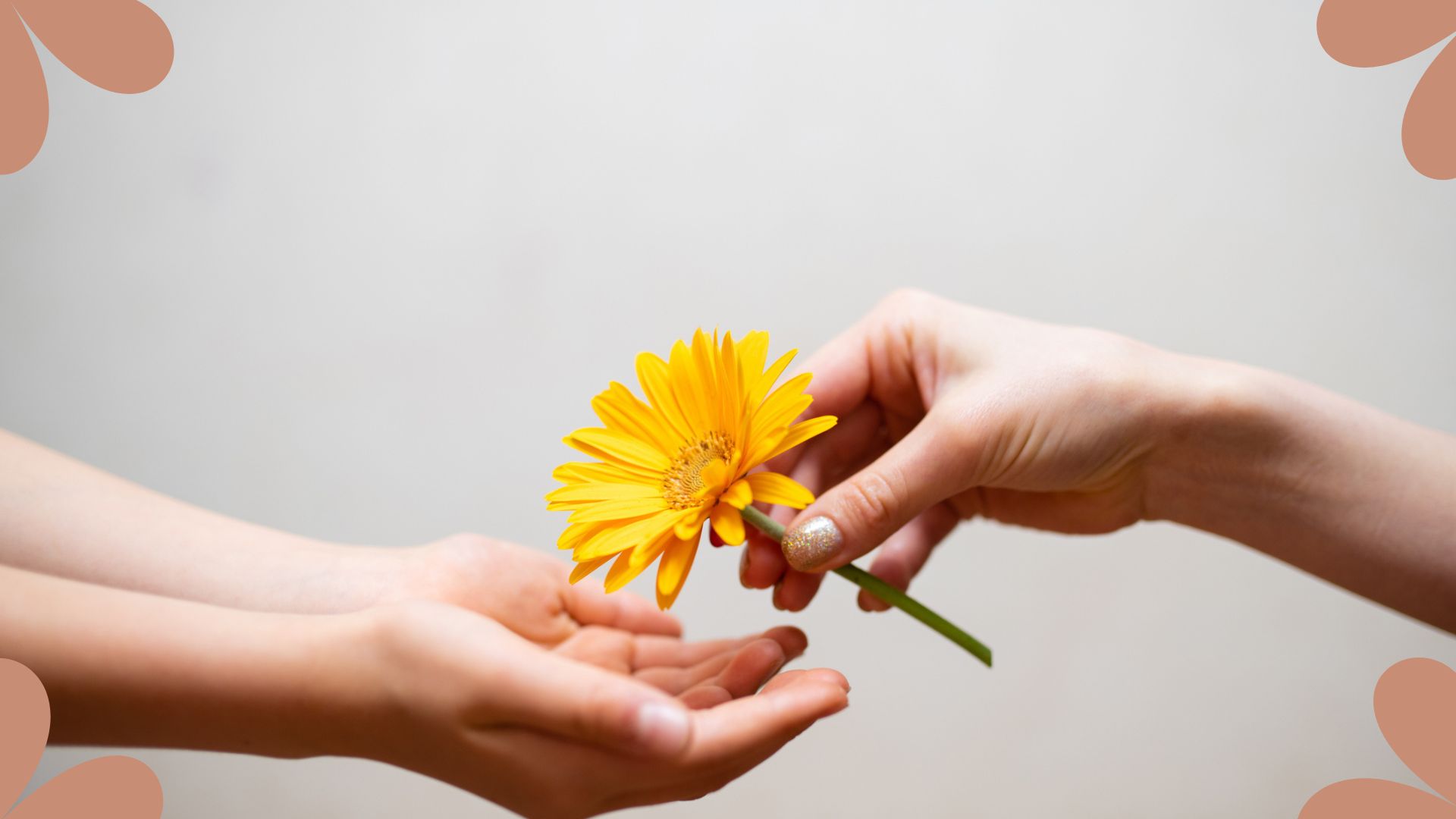 Small acts of kindness to brighten someone's day
Small acts of kindness to brighten someone's dayThese little acts of kindness and thoughtful gestures can truly create a positive impact
By Anna Paul